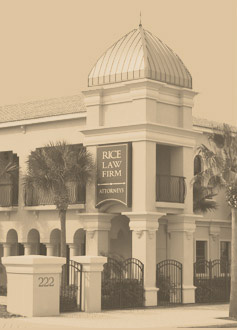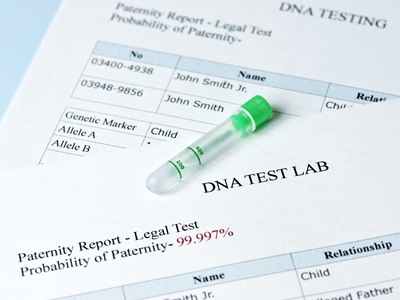Divorce Law in Florida
Divorce in Florida is referred to as dissolution of marriage. Florida is a no-fault divorce state. Thus, a spouse is not required to prove fault or misconduct or establish grounds for the divorce. We often have to explain to our prospective clients that the court, as general rule, is not interested in hearing about the parties’ dirty laundry.
Florida Alimony Law
Alimony is one of the most contested issues in a divorce proceeding. Next to custody, it’s the second most litigated issue in a Florida divorce case. The laws in Florida regarding alimony have changed significantly over the past several years. The experienced family lawyers at the Rice Law Firm are intimately familiar with the current developments regarding Florida’s alimony laws and court opinions.
Injunctions Against Domestic and other Violence
Injunctions (commonly called restraining orders) against violence are emergency matters which are governed by a specific set of rules and statutes. In Florida, a spouse or family member who has been the victim of domestic violence or believes he or she is in immediate threat of bodily harm from another, may seek an injunction for protection against domestic violence to prevent contact with that person.
Mediation in Florida
As a general rule, mediation is required in all divorce and family law cases in Florida. Judges in most family law cases require the parties to mediate before the judge will hear the case at trial. Mediation is a settlement conference conducted by a neutral and disinterested, certified family law mediator. The purpose of mediation is to settle most, if not all, of the contested issues in the divorce or family law case.
Modifications and Enforcement of Judgments and Orders
Final Judgments of Dissolution of Marriage and Final Judgments of Paternity are subject to modification (change) only upon a showing of a substantial change of circumstances since the final judgment was entered. Only issues regarding children, child support and alimony may be modified. The division of assets and liabilities in a final judgment of dissolution of marriage cannot modified at a later time regardless of the changed circumstances.
Prenuptial Agreements in Florida
Prenuptial agreements are legal and enforceable in Florida. The Rice Law Firm is experienced in drafting and negotiating prenuptial agreements. The attorneys of Rice are also qualified to contest or defend the validity of a prenuptial agreement in the divorce court.
Equitable Distribution of Marital Assets and Liabilities
In dissolution of marriage (commonly referred to as divorce) cases in Florida, the legal concept of equitable distribution is utilized as opposed to community property when distributing assets and liabilities. Equitable means fair not equal. In other words, assets and liabilities are not simply split in half or 50/50. The first step in the equitable distribution process is to identify all assets and liabilities of both spouses. Then those assets are characterized as either marital, non-marital or a hybrid of both.
Division of Retirement, Pensions and Investment Accounts
Retirement accounts, pensions and investment accounts are often among the largest and most significant assets at issue in a divorce proceeding. Generally, all vested and non-vested benefits and funds accumulated during the marriage in retirement, pensions, profit-sharing, annuities, and insurance plans are considered marital property and subject to division during a divorce proceeding. Many accounts will be easily identified as marital property and divided with little difficulty, while others may be much more complicated due to difficulties in determining the value of accounts that are not yet payable or ambiguous wording in a prenuptial agreement. Stock options, for example, are defined as marital or non-marital depending on whether they reward past versus future performance.
Dividing Businesses and Professional Practices in a Florida Divorce
Many divorcing spouses own a family business or closely held corporation or are professionals with a successful practice. Often times, the business or professional practice is one of the most valuable assets in the marital estate. The divorcing spouse, whether the business owner or professional, will want to protect their livelihood and retain their business or practice. If the non-owner spouse makes a claim to the business or practice in a divorce action, then the court will be required to characterize and value the business or practice. The issue is whether the non-owner/non-professional spouse is entitled to an interest in the other spouse’s business or professional practice and, if so, how that spouse will be compensated. The divorce attorneys at the Rice Law Firm have extensive experience in representing business owners and professionals and know how to navigate the complicated laws regarding the characterization and valuation of these important assets.
Florida Divorces Involving Wealthy Individuals and Large Marital Estates
The Rice & Rose Law Firm is experienced in handling divorce cases involving large marital estates. Whether the case involves a large, non-marital inheritance, a successful family business, intellectual property, a significant law suit settlement, an employee stock ownership plan, stock options, lottery proceeds, a significant financial portfolio, real estate holdings, pensions and annuities or a professional practice, we have the experience and expertise to identify, value and distribute, if necessary, these assets.
Child Custody and Parenting
When spouses divorce or unmarried parents separate and they have minor children, Florida law requires that the court approve a parenting plan that covers all issues related to the children. In the past, children were considered in the “custody” of one parent or another. In recent years, “parenting plans” and “timesharing schedules” replaced the traditional concepts of “custody ” and “visitation.” At present, the term custody is rarely used in the family law context.
Child Support Law in Florida
The Florida legislature has determined that each parent has a fundamental obligation to provide support to his or her minor or legally dependent children. Child support is a right that belongs to the child and which may not be contracted away by the parents. It is the obligation of both parents to provide support. A custodial parent may not waive child support for a child because it is not in the best interest of the child and is contrary to public policy.
Paternity in Florida
In 2013, 42% of children were born out of wedlock. With the increasing number of children born to unmarried parents, the law of paternity in Florida has become more complex in recent years. Paternity is a legal action to obtain a court order to identify and determine a child’s father. Any woman who is pregnant or has a child, any man who has reason to believe that he is the father of a child and any child may bring a paternity action.
Parents Relocating with Minor Children
Pursuant to Fla. Stat. § 61.13001, any parent who wishes to relocate with the minor children more than fifty miles away must petition the court for approval. The reason is that such a move affects the parenting plan and particularly the timeshare schedule. The parents may agree in writing to change the schedule and submit it to the court for ratification. If they cannot agree the court will hold an evidentiary hearing to decide whether or not the move is in the best interest of the children.
















